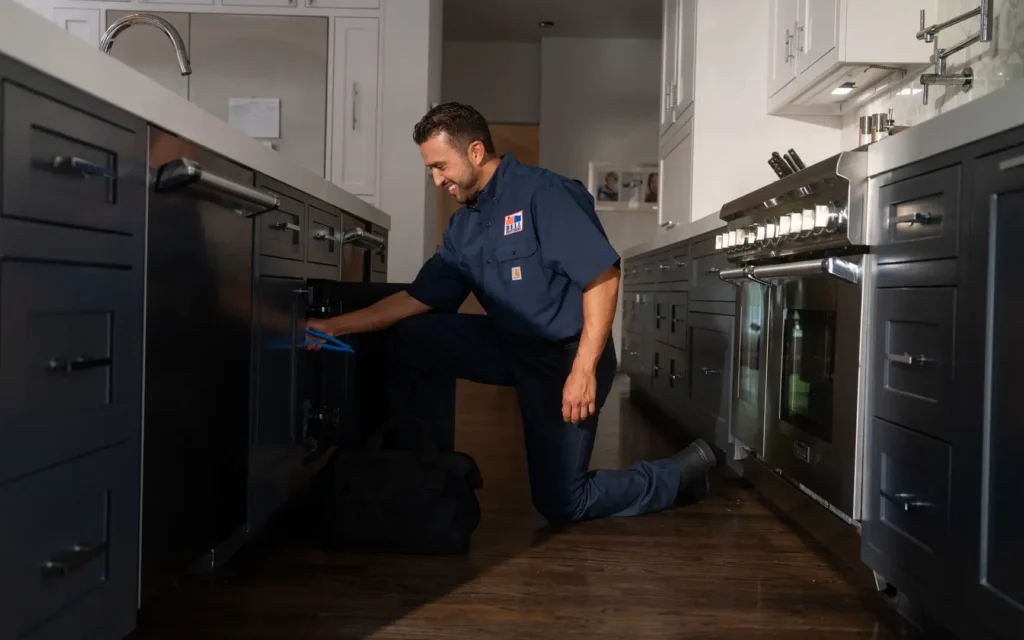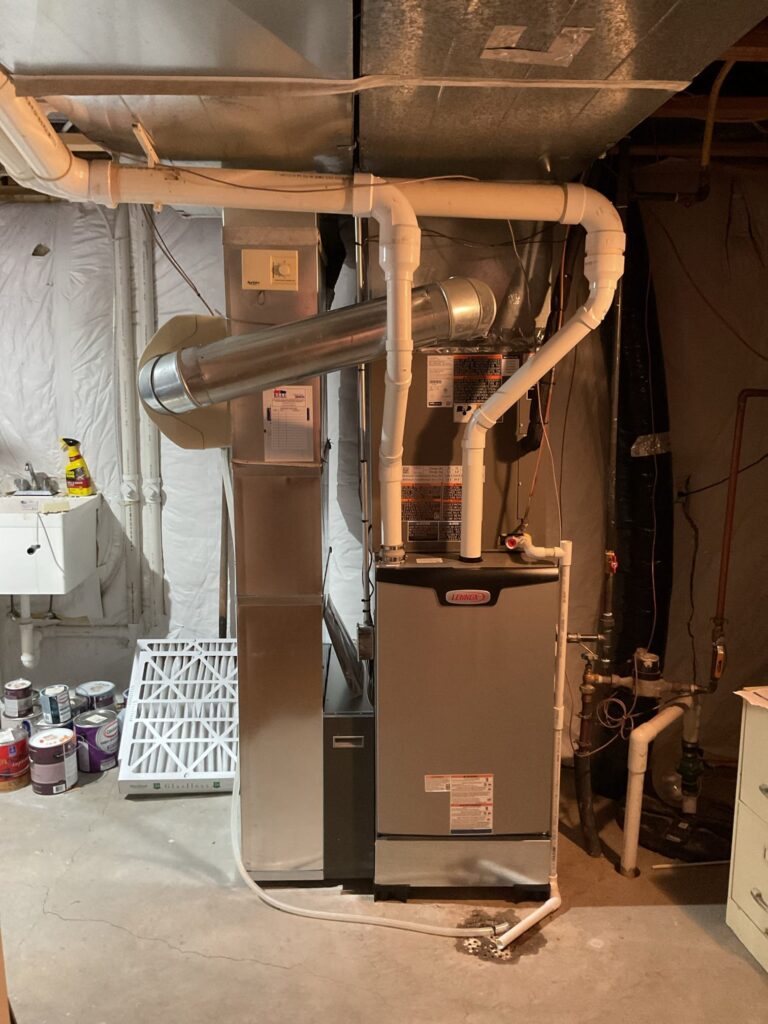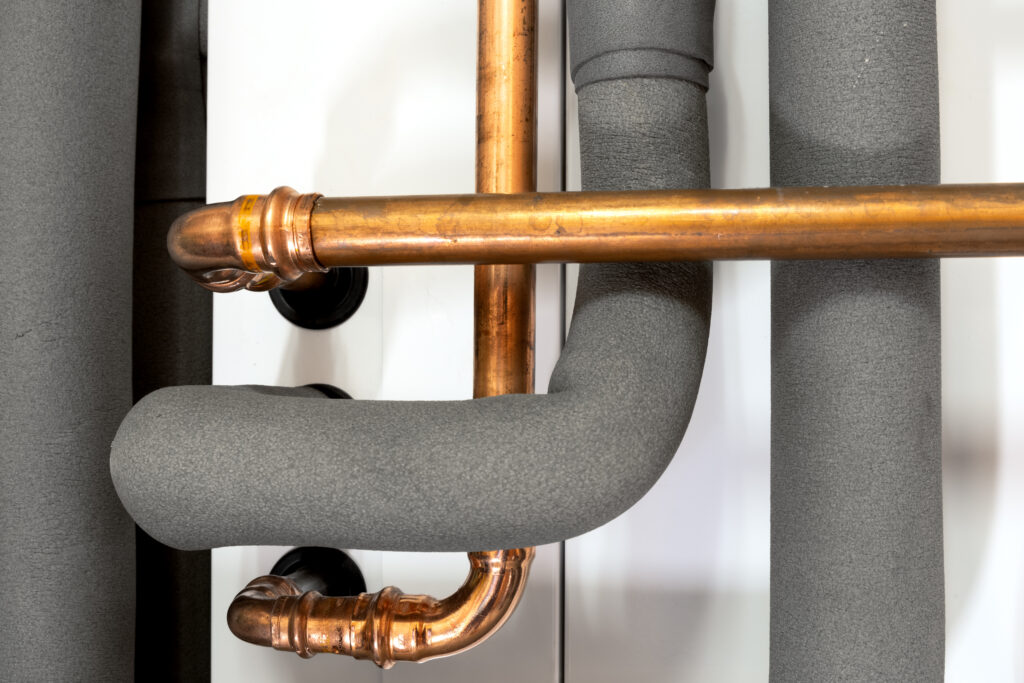

Blog
Improve Furnace Energy Efficiency to Combat High Natural Gas Bills
Every winter when the temperature drops, you rely on your furnace to keep your home warm and comfortable all season long. While it is normal for this to result in a higher monthly energy bill, costs have been much higher this year than in years past.
This is because the market price for natural gas has more than doubled from where it was last year. In October 2021, MidAmerican Energy warned customers that they could expect their heating bills to increase by 46-96%.
One of the reasons for the price increases is that when the COVID-19 pandemic began and businesses started shutting down, the demand for natural gas decreased. As a result, less was produced and stored. When businesses started re-opening, the demand outpaced the supply and has led to higher prices.
Another reason is that production in Texas was disrupted when a polar vortex and ice storm struck Texas in February 2021 and drove prices to historic highs. MidAmerican Energy has had to pass these costs on to its customers.
In addition to rising natural gas prices, the cost of propane, which is used to heat many rural homes in Iowa, also soared. In October 2021, the U.S. Energy Information Administration projected the price to rise by 83%.
There are some things you can do, both on your own and with the help of a professional HVAC contractor, to conserve energy and save money on your heating bill while potentially improving home comfort.
Complete a Home Energy Audit
A home energy audit should be your first step before implementing any energy- or cost-saving home improvements. It can help you determine how much energy your home uses, where it is inefficient, and which problem areas you should prioritize to save power and money.
Home energy audits can be performed by a professional or by yourself. The HomeCheck® Online assessment tool from MidAmerican Energy analyzes the effects of your home energy use based on your lifestyle and habits. It provides information on what uses the most power in your home and personalized tips to reduce your energy use.
Improvements You Can Make On Your Own
Once you’ve completed a home energy audit, there are some simple solutions you can do on your own. The No. 1 thing you can do without calling a professional is to change your filter regularly.
Read More: When and How To Change Your Furnace Filter
Another thing that can reduce your furnace’s energy efficiency is negative pressure. This means that there is less air in your home than outside and, in the winter, cold dry air will be pulled inside.
A few simple ways to balance out the pressure on your own are to:
- Replace worn weather-stripping around your windows and doors for a tighter seal.
- Consider not doing multiple loads of laundry back-to-back. The clothes dryer removes a ton of air from your house.
How Can an HVAC Contractor Help
For more intricate home improvement tasks, you will want to enlist the help of a professional HVAC contractor.
Sealing Your Air Ducts
The average home’s air duct system leaks 25% to 40% of the air that flows through it. This can lead to frigid temperatures on your second floor in the winter, dusty furniture and high utility bills.
You may be able to seal some air ducts on your own, but it’s possible there are leaks hiding behind the walls, floors or ceilings. This is why you should call a professional to help you out.
Sealing your ductwork using a product called Aeroseal® can help improve comfort, reduce leaks by up to 90% and improve air quality in your home.
Have Annual Maintenance Completed
Annual maintenance keeps your furnace working efficiently and reduces the chances of an unexpected midwinter breakdown. By not properly cleaning your furnace every year, your HVAC system can lose up to 40% of its heating efficiency.
Annual furnace maintenance performed by a trained technician should include:
- Full cleaning of HVAC system
- Inspection of safety switches and devices
- Check of heat exchanger for cracks or damage
- Filter replacement
- Calibration of temperature controls and economizer controls
- Adjustment of fans and belts
- Inspections of all electrical components
Read More: Why Annual Furnace Maintenance is Important
Upgrade To a High Efficiency HVAC System
If the time has come for you to replace your furnace, consider upgrading to a high-efficiency system. The energy and cost savings over the life of the unit will offset the upfront cost and reduce your monthly utility bill.








